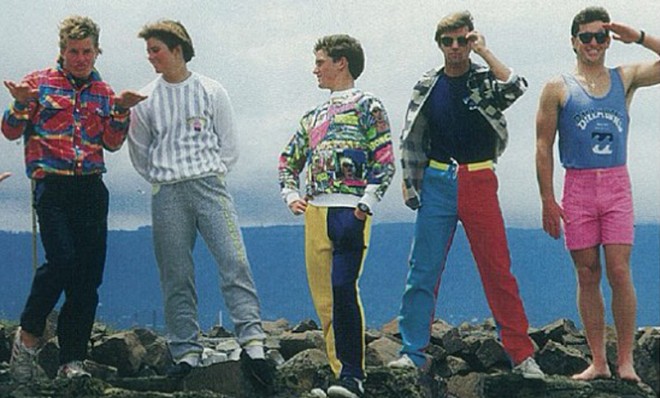Dude, what happened to Billabong?
The company is basically wiping out

A free daily email with the biggest news stories of the day – and the best features from TheWeek.com
You are now subscribed
Your newsletter sign-up was successful
Billabong is basically worthless, brah.
The Australian surf company said Tuesday it lost A$860 million in the year that ended in June, way more than the A$547 million loss analysts surveyed by Bloomberg expected.
In addition, Billabong wrote down the value of its namesake label — the 40 year-old brand that helped take Australian surf culture global — to zero dollars.
The Week
Escape your echo chamber. Get the facts behind the news, plus analysis from multiple perspectives.

Sign up for The Week's Free Newsletters
From our morning news briefing to a weekly Good News Newsletter, get the best of The Week delivered directly to your inbox.
From our morning news briefing to a weekly Good News Newsletter, get the best of The Week delivered directly to your inbox.
As this dude put it:
Meanwhile, the value of its 13 other brands, including Kustom footwear and Von Zipper eyewear, fell to A$90 million in June, from A$614 million in December 2011.
So how did Billabong, which at its peak in 2007 hit a market value of A$3.84 billion, essentially wipe out?
For one, competitors like Abercrombie & Fitch have chipped away at market share, says Bloomberg. At the same time, Billabong's global expansion plan has loaded the company with debt.
A free daily email with the biggest news stories of the day – and the best features from TheWeek.com
In the last year alone, Billabong spent A$23.3 million on advisers to help with restructuring and other corporate jiggering — more than the value of its earnings before interest and tax. Chairman Ian Pollard said he'd rather have spent that money elsewhere, says Ad Age.
To cope, Billabong has closed 158 stores, cut 15 percent of its jobs in Europe, sold the DaKine brand, and cut its supplier list by 75 percent.
It also took out a loan from Altamont Capital Partners to refinance its debt.
However, debt restructuring won't get to the core of its troubles.
"It probably isn't cool any more for the youth of today to wear Billabong," Todd Guyot, an analyst at Moelis & Co. in Sydney, told Bloomberg. "You can see how much the core business has deteriorated over the last few years. There's still a massive challenge to get the business going right."
Lily Kuo explains at Quartz:
More importantly, its efforts to globalize the brand have killed its niche appeal. (It's not easy to appeal to a counterculture crowd of surfers and skateboarders if your stuff sells at Macy's). Andrew Warren and Chris Gibson, authors of a forthcoming book on the surf industry, say that when labels enter the mass market they lose credibility as local brands. No doubt surfers in California, Australia and Hawaii have moved on to sporting more obscure brands that reinforce their subculture. [Quartz]
Last year, Billabong rejected an A$850 million takeover bid that would have valued the shares at A$3.50. When markets closed in Sydney today they were worth just 53.5 cents.
Not the gnarliest move.
Carmel Lobello is the business editor at TheWeek.com. Previously, she was an editor at DeathandTaxesMag.com.